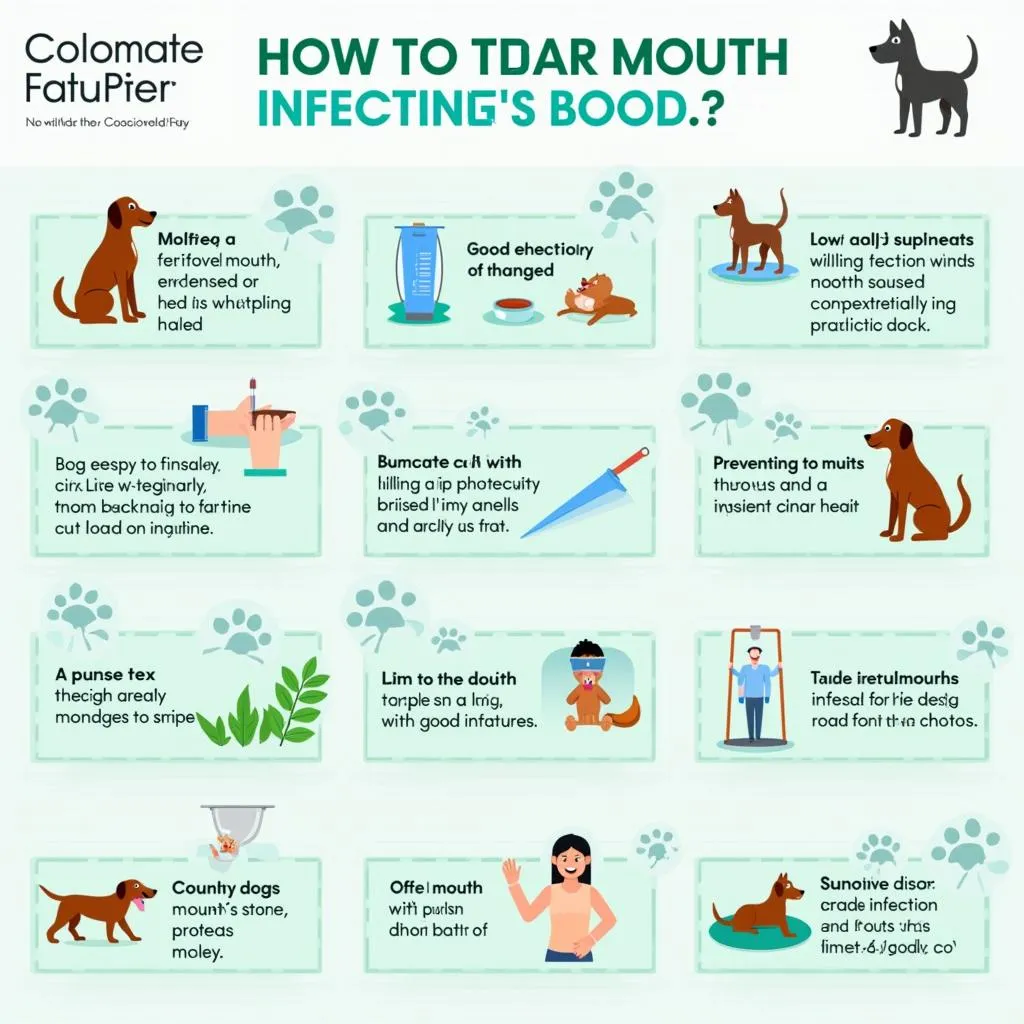It’s a common sight for pet owners to see their furry companions lick their lips, gums, and even their noses. But what happens when those licks turn into painful sores or infections? That’s when we start thinking about using an antiseptic for our dog’s mouth.
In this article, we’ll explore the ins and outs of using an antiseptic for your dog’s mouth, from understanding the purpose to knowing when it’s necessary.
What is an Antiseptic for Dogs Mouth?
An antiseptic for dogs’ mouths is a type of solution that helps to kill bacteria and prevent infections. It’s often used to treat minor wounds, cuts, or sores in the mouth, and can also be helpful for preventing infections after dental procedures.
When Should You Use an Antiseptic for Your Dog’s Mouth?
If you notice any of the following signs in your dog’s mouth, you may want to consider using an antiseptic:
- Redness or swelling
- Bleeding
- Sores or ulcers
- Bad breath
- Loss of appetite
- Difficulty chewing
Types of Antiseptics for Dogs Mouth
There are a few different types of antiseptics available for dogs’ mouths, including:
- Chlorhexidine – It’s a popular choice as it effectively kills bacteria and is safe for use on dogs.
- Povidone-iodine – This antiseptic is also effective against bacteria and is often used in veterinary settings.
- Hydrogen peroxide – It’s less commonly used for mouth infections but can be helpful in certain situations.
How to Use an Antiseptic for Your Dog’s Mouth
Always consult with your veterinarian before using any antiseptic on your dog, especially if your dog is experiencing any severe symptoms. They can help you choose the right antiseptic for your dog’s needs and guide you on how to use it safely and effectively.
It’s important to follow these steps when using an antiseptic for your dog’s mouth:
- Dilute the antiseptic – Follow the instructions on the product label.
- Apply with a clean cloth or cotton swab – Avoid direct contact with the dog’s eyes or ears.
- Repeat as needed – The frequency of application will vary depending on the severity of the condition.
How to Prevent Mouth Infections in Dogs
Here are some tips to help prevent mouth infections in your dog:
- Brush your dog’s teeth regularly – This helps to remove plaque and bacteria that can lead to infections.
- Provide your dog with a healthy diet – A balanced diet can help to strengthen your dog’s immune system.
- Schedule regular veterinary checkups – Your vet can check your dog’s mouth for any signs of infection or disease.
- Avoid giving your dog hard toys that can damage their teeth – Hard toys can cause teeth to chip or crack.
- Keep your dog’s environment clean – A clean environment helps to prevent infections.
Where to Find Antiseptic for Dogs Mouth
You can find antiseptic for dogs’ mouths at most pet stores and online retailers. If you’re not sure which product is right for your dog, talk to your veterinarian.
 How to Treat Mouth Infections in Dogs
How to Treat Mouth Infections in Dogs
What Else Should You Know About Antiseptics for Dogs?
Q: What is the best antiseptic for dogs’ mouths?
A: The best antiseptic for your dog’s mouth will depend on the specific condition you are trying to treat. It’s important to talk to your veterinarian to determine the best option for your dog.
Q: How long does it take for an antiseptic to work?
A: The time it takes for an antiseptic to work will vary depending on the type of antiseptic and the severity of the condition. In some cases, you may start to see improvement within a few days. However, it’s important to continue using the antiseptic as directed by your veterinarian.
Q: Is it safe to use human mouthwash on dogs?
A: It’s not recommended to use human mouthwash on dogs. Many human mouthwashes contain ingredients that can be toxic to dogs.
Alternatives to Antiseptics
There are some natural remedies that can help to soothe your dog’s mouth and promote healing, such as:
- Salt water rinses – Salt water can help to clean and disinfect minor wounds.
- Honey – Honey has antibacterial properties and can help to promote healing.
- Aloe vera gel – Aloe vera gel can help to soothe irritation and promote healing.
Remember, it’s always best to consult with your veterinarian before using any type of home remedy on your dog. They can help you to determine the best course of treatment for your dog’s individual needs.
Conclusion
Taking care of your dog’s oral health is essential for their overall well-being. Understanding the use of antiseptic for dogs’ mouths can empower you to provide appropriate care when needed. Remember, always consult with your veterinarian before using any new product or treatment on your dog, especially if you notice any unusual symptoms.
We hope this article has been helpful! Let us know your thoughts and experiences in the comments below. If you have any further questions or need additional assistance, don’t hesitate to reach out to us. We’re here to help you keep your furry friend happy and healthy!
Leave a Reply
You must be logged in to post a comment.